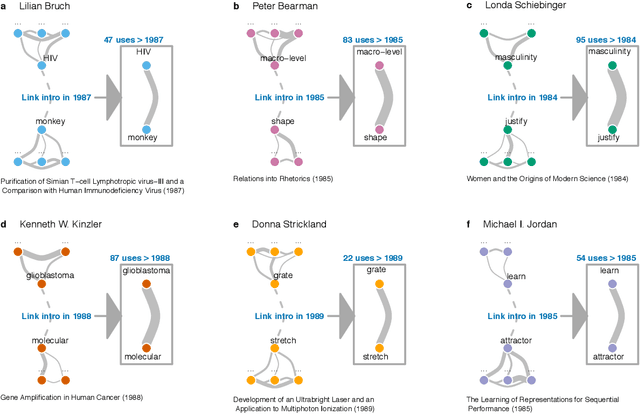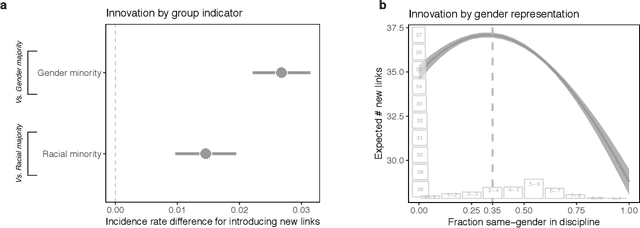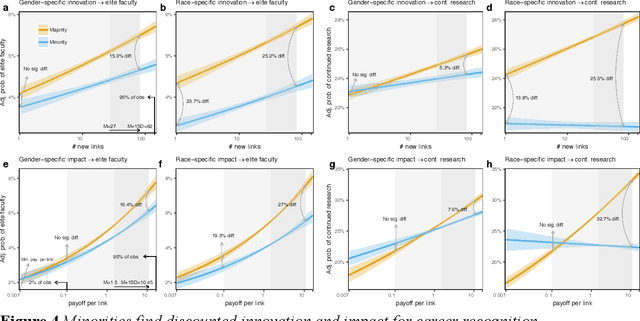Sebastian Munoz-Najar Galvez
Diversity Breeds Innovation With Discounted Impact and Recognition
Sep 04, 2019



Abstract:Prior work poses a diversity paradox for science. Diversity breeds scientific innovation, and yet, diverse individuals have less successful scientific careers. But if diversity is good for innovation, why is science not rewarding diversity? We answer this question by utilizing a near-population of ~1.03 million US doctoral recipients from 1980-2015 and their careers into publishing and faculty roles. The article uses text analysis and machine learning techniques to answer a series of questions: How can we detect scientific innovation? Does diversity breed innovation? And are the innovations of diverse individuals adopted and rewarded? Our analyses show that underrepresented groups produce higher rates of scientific novelty. However, their novel contributions are discounted: e.g., innovations by gender minorities are taken up by other scholars at lower rates than innovations by gender majorities, and innovations by gender and racial minorities result in fewer academic positions. This suggests an unfair system in which diverse individuals innovate, but their innovations are disproportionately ignored and fail to convert into career success at the same rate as majority groups. In sum, there may be an unwarranted reproduction of stratification in academic careers that discounts diversity's role in innovation and partly explains the underrepresentation of some groups in academia.
 Add to Chrome
Add to Chrome Add to Firefox
Add to Firefox Add to Edge
Add to Edge